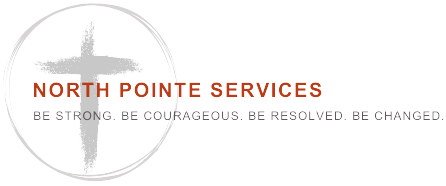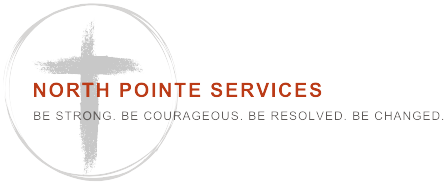How Suicide Prevention, Safety Planning, and Compassion Push Back Darkness
When someone walks into a crisis—whether in the ER, a counseling office, or a family living room—the weight of darkness can feel overwhelming. Fear, despair, and hopelessness close in like a fog. For those of us who serve in mental health or ministry, these moments are not just clinical—they are deeply spiritual.
Every suicide prevented, every life preserved, every word of compassion spoken into the chaos is an act of spiritual warfare. It’s standing in the gap between destruction and hope, between despair and life.
The Enemy’s Tactic: Despair
Jesus said in John 10:10, “The thief comes only to steal and kill and destroy; I have come that they may have life, and have it to the full.”
In crisis work, despair is one of the clearest signs of the thief’s work.
- A teenager convinced their life doesn’t matter.
- A parent who believes their children would be better off without them.
- An elderly adult who feels abandoned and forgotten.
These are not just passing thoughts. They are destructive lies whispered into vulnerable hearts. Despair isolates, convinces people they’re beyond help, and pushes them toward irreversible decisions.
The Counselor’s Role: Standing in the Gap
When a clinician or pastor sits with someone in crisis, they step into the role of an intercessor—even if they don’t realize it. Their job is to create enough safety and stability for hope to flicker back to life.
This is spiritual warfare in practice:
- Asking direct questions about suicidal thoughts breaks the silence of shame.
- Writing out a safety plan confronts hopelessness with concrete steps toward survival.
- Speaking compassion pushes back against the enemy’s accusations.
In these moments, the counselor becomes a shield—absorbing fear, anger, and despair—so the person in front of them has space to breathe again.
Suicide Prevention as Spiritual Warfare
Suicidality isn’t just a clinical symptom. It’s also a spiritual battle between lies and truth, despair and hope.
- The Lie:“You are a burden.”
- The Truth: “You are fearfully and wonderfully made” (Ps. 139:14).
- The Lie:“Nobody cares if you live or die.”
- The Truth: “Cast all your anxiety on Him because He cares for you” (1 Pet. 5:7).
- The Lie:“There is no way out.”
- The Truth: “With God all things are possible” (Matt. 19:26).
Asking about suicide, developing coping strategies, and activating crisis support systems are clinical interventions—but they also participate in a much larger spiritual fight for life.
Safety Planning: Building a Shield of Hope
One of the most powerful tools in crisis work is a safety plan. On paper, it looks simple: warning signs, coping strategies, supportive contacts, and emergency numbers. But spiritually, it’s much more than a checklist—it’s a declaration that the person’s life is worth protecting.
Each step of a safety plan contradicts the enemy’s agenda:
- Identifying warning signs = awareness instead of confusion.
- Listing coping strategies = empowerment instead of helplessness.
- Naming supportive people = connection instead of isolation.
- Writing down reasons for living = purpose instead of despair.
Every safety plan says: “Your life has value, and there is a way forward.” That’s not just good counseling—that’s warfare against lies and destruction.
The Power of Compassion
Sometimes, the most spiritual thing you can do in crisis is simply to sit with someone in their pain. Compassion itself is a weapon against the darkness.
- Where the enemy says, “You are alone,” compassion says, “I’m with you.”
- Where shame says, “You don’t deserve love,” compassion says, “You matter.”
- Where fear says, “No one will understand,” compassion says, “Tell me your story.”
In Mark 5, when Jesus met the man living among the tombs—tormented, isolated, and self-destructive—His first act was not a sermon, but presence. He saw the man, spoke with him, and restored him to community. That same spirit of compassionate presence is what drives effective crisis care today.
Equipping Ourselves for the Battle
If you’re a clinician, pastor, or caregiver, stepping into crisis situations means stepping into battle. You need armor, both clinical and spiritual:
- Clinical skills: Training in suicide assessment, safety planning, and crisis de-escalation.
- Spiritual practices: Prayer, Scripture, and personal grounding before and after each encounter.
- Support system: Supervision, peer debriefing, and community to keep from carrying the weight alone.
Remember: you are not the Savior. You are the instrument. God is the one who ultimately preserves life, but He invites you to be part of His work on the frontlines.
Final Encouragement
Crisis work is exhausting, but it is holy. Every time you ask hard questions, write a safety plan, or sit in silence with someone’s pain, you are pushing back against darkness. You are saying: “Death will not have the last word here.”
Spiritual warfare doesn’t always look like dramatic encounters. Sometimes it looks like a counselor making one more phone call, a nurse staying late to sit with a patient, or a pastor praying with a family at 2 a.m. These are not small things—they are lifelines of light in moments when hope is most fragile.
If you’re walking with someone in crisis, take heart: God is present in that space. His Spirit equips you. His truth anchors you. And His love will never let go of the person in front of you.
✨ At North Pointe Services, we believe that every act of crisis care—whether suicide prevention, safety planning, or compassionate listening—is part of God’s work of pushing back darkness. If you or someone you love is struggling, reach out. Help and hope are available.








